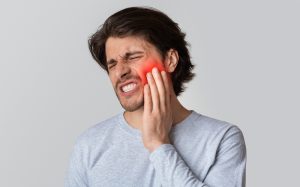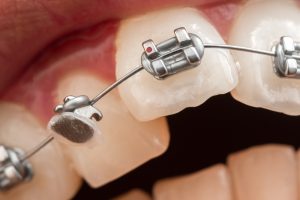Emergency Dentistry Services: Saving Your Smile
Emergencies, by their very nature, often come up unexpectedly and present serious problems. Dental emergencies are no different and need to be addressed as soon as possible to keep your smile healthy and strong.
Fortunately, at Desert Hills Dental Care, our Farmington dentists are trained in emergency dental care services. They can even give you advice on how to handle dental emergencies until you can see us. Learn more about common dental emergencies and how to handle them by calling us at (505) 327-4863 or keep reading to learn more.
What is Emergency Dentistry?
Emergency dentistry refers to the branch of dental care that deals with the prompt evaluation, diagnosis, and treatment of urgent dental issues that require immediate attention. These issues often involve sudden and severe pain, trauma, or conditions that, if left untreated, could lead to significant complications. Emergency dentistry services are designed to effectively resolve these issues as soon as possible.
Benefits of Seeking Emergency Dentistry Services
When you’re dealing with a dental emergency, the best thing you can do is seek treatment as soon as possible. The benefits of emergency dentistry services include the following:
Prompt Pain Relief
Emergency dentistry services provide immediate relief from severe dental pain. Whether it’s a toothache, trauma, or other urgent issues, our Farmington dentists can address the pain promptly, allowing patients to feel more comfortable and minimizing distress.
Timely Diagnosis and Treatment
Quick access to emergency dental care ensures a timely diagnosis of the dental issue. Our dentists can identify the root cause of the problem and provide appropriate treatment, preventing the condition from worsening.
Preservation of Oral Health
Emergency dentistry helps preserve overall oral health by addressing urgent issues promptly. Timely intervention can prevent the progression of dental problems, reducing the risk of complications and more extensive treatments in the future.
Prevention of Complications
Immediate attention to dental emergencies helps prevent complications. For example, treating an abscess promptly can prevent the spread of infection, while addressing a chipped tooth can prevent further damage and the need for more extensive restorative procedures.
Saving Dislodged or Injured Teeth
In cases of dental trauma where a tooth has been knocked out or severely injured, emergency dentistry increases the chances of saving the tooth. Quick action, such as re-implanting a knocked-out tooth, can significantly impact the long-term outcome.
Reduced Discomfort and Anxiety
Dental emergencies often cause significant discomfort and anxiety. Emergency dentistry services aim to alleviate both physical and emotional distress by providing timely care, reducing pain, and addressing patient concerns.
Convenience and Accessibility
Emergency dental services are designed to be accessible when urgent situations arise. This convenience ensures that patients can seek immediate care without waiting for regular office hours, especially during weekends or holidays.
Preservation of Aesthetic Appearance
Prompt attention to dental emergencies helps preserve the aesthetic appearance of the smile. Quickly repairing a chipped or broken tooth, for example, ensures that the patient can maintain a confident smile without prolonged cosmetic issues.
Patient Education and Follow-up
Emergency dentistry includes patient education on preventive measures to avoid future emergencies. Additionally, we may provide follow-up care instructions and schedule appointments to monitor the patient’s oral health after the emergency has been addressed.
Common Dental Emergencies and How to Handle Them
As with any emergency, being prepared can greatly minimize the risk of lasting or severe damage. Here are some common dental emergencies and tips on how to handle them:
Severe Toothache
Intense and persistent toothaches may signal an underlying issue, such as an infection or dental decay, requiring immediate assessment and treatment. In case of severe toothache:
- Rinse your mouth with warm water to clean the area.
- Use dental floss to gently remove any debris or food particles that may be irritating.
- Apply a cold compress to the outside of your cheek to reduce swelling.
- Take over-the-counter pain relievers as directed for temporary relief.
- Avoid placing aspirin directly on the gums, as it may cause irritation.
Trauma or Injury
Accidents, falls, or sports-related injuries can result in chipped, cracked, or knocked-out teeth, necessitating immediate dental intervention to minimize damage and save the tooth if possible. You can handle oral trauma or injury with the following:
- If a tooth is knocked out, handle it by the crown (top part), not the root. Rinse it gently with water, but don’t scrub or remove any attached tissue.
- Try to reinsert the tooth into its socket and hold it in place by gently biting down on a clean cloth or gauze.
- If reinsertion isn’t possible, place the tooth in a container of milk or saliva and seek dental care immediately.
- For chipped or cracked teeth, rinse your mouth with warm water and apply a cold compress to reduce swelling.
Lost Filling or Crown
If a dental filling or dental crown comes loose or falls out, it can expose sensitive tooth tissue and require prompt attention to prevent further damage.
- Save the filling or crown if possible and bring it to your dental appointment.
- Clean the exposed tooth gently with warm water.
- Avoid chewing on the affected side and use dental wax or temporary dental cement (available at drugstores) to cover the exposed area temporarily.
Abscess or Infection
Dental infections, often indicated by swelling, pain, or drainage of pus, can lead to serious complications if not addressed promptly. An abscess may require drainage and antibiotics. You can handle this emergency until you can visit our office with the following:
- Rinse your mouth with a mild saltwater solution to help reduce bacteria.
- Use a cold compress on the outside of your cheek to alleviate pain and swelling.
- Avoid applying heat to the affected area.
- Take over-the-counter pain relievers as directed, but avoid placing aspirin directly on the gums.
Bleeding Gums or Oral Tissues
Uncontrolled bleeding from the gums, tongue, or other oral tissues may be a sign of trauma, advanced gum disease, or other underlying issues that need urgent attention. To deal with this emergency, our dentists recommend the following:
- Rinse your mouth gently with warm water to clean the area.
- Apply a clean gauze or cloth to the bleeding area and maintain gentle pressure for about 15 minutes.
- Avoid excessive spitting, as it may prolong bleeding.
- Seek emergency dental care if bleeding persists.
Orthodontic Issues
Problems with braces or other orthodontic appliances that cause significant discomfort or injury to the mouth may require emergency dental care. To deal with orthodontic issues, our Farmington dentists recommend the following:
- For a protruding wire, use the eraser end of a pencil to gently push it back into place.
- If a wire is causing irritation, cover the end with dental wax or a small cotton ball.
- If a bracket or band becomes loose, save it if possible, and contact your orthodontist for guidance.
- If an orthodontic appliance is causing significant pain or injury, seek emergency dental care.
Be Prepared
To make sure you can handle emergencies until you can visit our Farmington dental office, we recommend the following tips:
- Keep a dental emergency kit with items like gauze, dental wax, over-the-counter pain relievers, and the contact information for your dentist.
- Avoid using sharp objects or excessive force when handling dental issues to prevent further damage.
- Contact your Farmington emergency dentist promptly for guidance and to schedule an emergency appointment.
- If experiencing severe pain, swelling, or difficulty breathing or swallowing, seek immediate medical attention by calling emergency services.
Frequently Asked Questions
In most cases, it’s advisable to call the emergency dental clinic before arriving. However, they understand the urgent nature of dental issues and will make efforts to accommodate emergencies, offering guidance and prioritizing those in immediate need.
Dental emergencies include severe toothaches, trauma, abscesses, uncontrolled bleeding, and issues requiring immediate attention to prevent complications. If you’re uncertain, contact your dentist or an emergency dental clinic for guidance.
Emergency dental clinics often accept dental insurance, but coverage may vary. It’s recommended to check with the clinic beforehand and inquire about payment options, insurance acceptance, and out-of-pocket costs.
While severe pain is a common reason for emergency dental visits, emergency dentistry also addresses issues like trauma, knocked-out teeth, lost fillings or crowns, and uncontrolled bleeding. Any urgent dental situation that requires immediate attention qualifies as a dental emergency.
Call Desert Hills Dental Care to Safeguard Your Smile During Emergencies
If you’re facing a dental emergency or want to learn more about how to handle unexpected situations, call us now at (505) 327-4863 and schedule your emergency appointment. Our compassionate team is ready to guide you through emergencies and ensure your smile stays healthy and vibrant.
Don’t wait — act swiftly to protect your oral well-being. Providing emergency dentistry services to new and returning patients from Farmington and surrounding areas such as Kirtland, Spencerville, and Bloomfield, NM.
